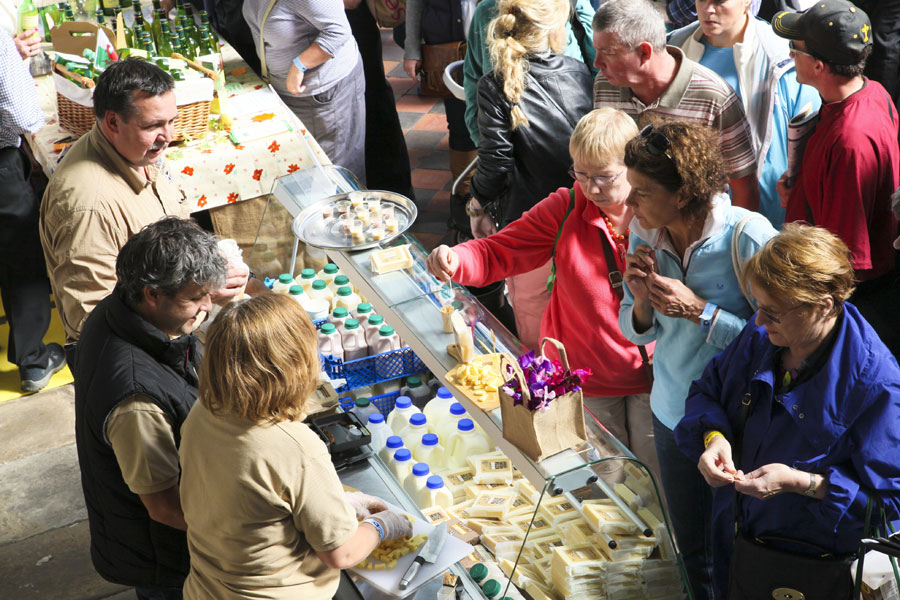A survey of Welsh shoppers published this week has revealed that organic food may no longer be seen as a luxury purchase, reserved just for the more affluent consumers.
The research1, commissioned by Organic Centre Wales, found that the trend towards shoppers who never buy organic food coming predominantly from lower “social grades2” appears to have changed.
When the study was last conducted in 2010, more than three quarters (76%) of respondents that never bought organic food were classified within the lower social grades (ie. C2DE), but in 2013 this figure dropped to nearly half (54%).
Looking at the group of consumers that do buy organic, although there were slight variations in the amount they bought, shoppers from more affluent households (ABC1) still account for 64% of all organic buyers, ruling out the explanation that richer households are turning their backs on organic produce.
However, the study also highlighted the need for greater education about organic food and farming if shoppers are to buy more organic products, more regularly. Of the 702 shoppers interviewed, almost half (43%) revealed that they do not know enough about organic to justify paying any extra for it, while more than half (57%) of non-buyers listed price amongst the main barriers to choosing organic – both statistics being almost identical to the findings in the 2010 survey.
“We are not surprised to see that concerns over price are still impacting on the decision to buy organic, not least because we know that most people still think that organic food is far more expensive than it actually is in reality,” explained Neil Pearson from Organic Centre Wales.
“One really interesting thing about this study is that it reflects the many different reasons that people have for choosing organic, from health and taste, to animal welfare and wider environmental benefits. This variety in people’s motivations has remained extremely consistent over a number of years; suggesting that if price perception can be addressed then the organic market has a positive future in the UK.”
Wales’s largest food festival runs this weekend in Abergavenny, when organisers expect around 30,000 visitors to attend. Festivals like Abergavenny, as well as farmers’ markets and box schemes have been growing in popularity in recent times and are beginning to account for a significant proportion of organic sales. Organic Centre Wales will be attending the Abergavenny Food Festival as part of its wider campaign to raise awareness amongst Welsh consumers and hopes to use the platform to communicate the principles and benefits of organic farming.
“The Food Academy at this year’s Abergavenny Festival will give youngsters the chance to cook some fantastic organic recipes alongside award-winning chefs like Valentine Warner and Organic Champion Roger Stevens, as well as hosting the Grand Finale of an organic ‘Grow it, Cook it, Eat it’ competition that has been run with local schools,” explains Mr Pearson.
“Children and parents can also find out more about the differences between organic and conventional farming and get hands on with organic butter churning and other activities.”
Despite admitting that they wanted to know more about organic farming, almost two thirds (64%) of respondents to the shopper survey said they thought that organic produce was healthier for you and over half (54%) felt that organic tends to mean better quality.
A recent UK poll undertaken in the aftermath of the British horse meat scandal suggested that 8 out of 10 consumers are interested in knowing more about where their food comes from. In the Welsh shopper survey, almost two thirds (65%) of respondents to this survey claimed that they were much more interested in knowing where a product has come from rather than whether it is organic.
“There has certainly been a surge of interest in the traceability of food and I think this could provide a real opportunity for organic producers,” added Mr Pearson.
“When consumers choose a product that is certified organic they are getting a guarantee that goes right down through the supply chain and ensures that certain standards have been met at every stage. The same guarantee cannot be given when a product is just described as local.”


















